2022 International Symposium on Clean Energy Materials
A satellite symposium between two conferences, focusing on Clean Energy Materials with the targets to tackle the twin challenges of sustainable energy supply and climate change. The proposed symposium aims to bring together top scientists from various countries to discuss the latest advances in functional materials for sustainable energy conversion and storage technologies and to establish new research collaborations.
The 17th Conference of the International Association of Colloid and Interface Scientists (IACIS 2022) and the Royal Australian Chemistry Institute National Congress 2022(RACI 2022) will be held on 26th-30th June 2022 and 3rd July-8th July 2022, respectively, at Brisbane Convention and Exhibition Centre. Both conferences will attract a large cohort of world-leading researchers in advanced materials and clean energy areas, providing an excellent opportunity for our researchers to interact with top researchers in these fields. On this occasion, we cordially invite you to attend this satellite symposium, 2022 International Symposium on Clean Energy Materials, between two conferences, focusing on Clean Energy Materials with the target to tackle the twin challenges of sustainable energy supply and climate change. The proposed symposium aims to bring together top scientists from various countries to discuss the latest advances in functional materials for sustainable energy conversion and storage technologies and to establish new research collaborations.
This symposium is organised by Faculty of Engineering, Architecture and Information Technology (EAIT), Australian Institute for Bioengineering and Nanotechnology (AIBN), The University of Queensland, and SafeREnergy - ARC Research Hub for Safe and Reliable Energy (Deakin University).
The main themes include, but not limited to:
- Solar fuel and electrocatalysis
- Theme Chairs: Professor Antonio Tricoli, Dr Zhiliang Wang, Dr Muxina Konarova and Dr Tanveer Hossain
- New generation solar cells
- Theme Chairs: Professor Hongxia Wang, Dr Munkhbayar Batmunkh and Dr Miaoqiang Lyu
- Electrochemical energy storage materials and systems
- Theme Chairs: Professor Shanqing Zhang, Professor Dawei Wang, Dr Bin Luo, Dr Ruth Knibbe, Dr Jonathan Knott
- Nanocomposites and hybrids for energy
- Theme Chairs: Dr Jingwei Hou, Dr Sarina Sarina, Dr Lauren Macreadie
- Fundamental mechanism understanding: theoretical and computational investigation
- Theme Chairs: Dr Ardeshir Baktash, Dr Tim Duignan
- Storage and Transportation of Green Hydrogen
- Theme Chairs: Prof Qin Li, Associate Professor Guohua Jia
Abstracts
Please use the abstract submission template for your submission by 5 June 2022.
Abstract submissions are now open
Program
The final program of 2022 ISCEM has been released and can be downloaded via the link below.
Click Here to Download the Program.
Registration
Registration fees include:
- Attendance at all symposium themes
- Welcome reception ticket (1) on Thursday 30th June
- All morning and afternoon teas and lunches
- Symposium dinner ticket (1) on Friday 1st July
- Accommodation and travel expenses are additional to the registration fees.
Registration categories | Early bird registration | Standard registration |
|---|---|---|
Attendee registration | A$600.00 | A$700.00 |
Student registration | A$400.00 | A$450.00 |
Registration now open
Accomodation
A special rate of $212 per night, breakfast included, is available for conference attendees. Attendees will also receive complimentary self parking for the duration of their stay.
Attendees can organise their accommodation by either contacting the hotel directly, or via the provided online booking link.
Phone - 07 5592 9900 (ask for Rob from In House Reservations, Mon to Fri, between 11am and 6pm).
Email - groups.surfersparadise@ihg.com
Please Click Here for Online Booking.
Organisers
- Chair: Lianzhou Wang, EAIT/AIBN, UQ
- Co-chair: Ying (Ian) Chen, Deakin University
Organising committee:
- Shanqing (Eddie) Zhang, Griffith University
- Muxina Konarova, EAIT, UQ
- Jingwei Hou, EAIT, UQ
- Bin Luo, AIBN, UQ
- Cheryl Berquist, UQ
- Miaoqiang Lyu, AIBN/EAIT, UQ
- Zhiliang Wang, EAIT, UQ
- Ardeshir Baktash, EAIT, UQ
- Ruth Knibbe, EAIT, UQ
- Alexandra Henkel, Deakin University
- Jonathan Knott, University of Wollongong
- Qin Li, Griffith University
Confirmed Plenary speakers:
- Prof. Rose Amal, UNSW, ARC Laureate Fellow, FAA, FTSE
 Professor Rose Amal is a UNSW Scientia Professor and an ARC Laureate Fellow. Prof. Rose Amal is a chemical engineer and the leader of the Particles and Catalysis Research Group. Previously she was also the Director of the ARC Centre of Excellence for Functional Nanomaterials (2010-2013). Professor Rose Amal is recognised as a pioneer and leading authority in the fields of fine particle technology, photocatalysis and functional nanomaterials having made significant contributions to these related areas of research over the past 15 years. Her research contributions span from fundamental chemistry to applied chemical engineering fields; from material science and nano-research to a specialised photochemistry field. Her current research focuses on designing nanomaterials for solar and chemical energy conversion applications (including photocatalysis for water and air purification, water splitting, development of indoor self-cleaning materials, low temperature catalytic reactions) and engineering systems for solar induced processes, using the sun’s energy as a clean fuel source.
Professor Rose Amal is a UNSW Scientia Professor and an ARC Laureate Fellow. Prof. Rose Amal is a chemical engineer and the leader of the Particles and Catalysis Research Group. Previously she was also the Director of the ARC Centre of Excellence for Functional Nanomaterials (2010-2013). Professor Rose Amal is recognised as a pioneer and leading authority in the fields of fine particle technology, photocatalysis and functional nanomaterials having made significant contributions to these related areas of research over the past 15 years. Her research contributions span from fundamental chemistry to applied chemical engineering fields; from material science and nano-research to a specialised photochemistry field. Her current research focuses on designing nanomaterials for solar and chemical energy conversion applications (including photocatalysis for water and air purification, water splitting, development of indoor self-cleaning materials, low temperature catalytic reactions) and engineering systems for solar induced processes, using the sun’s energy as a clean fuel source.
- Prof. Chennupati Jagadish, ANU, ARC Laureate Fellow, FAA, FTSE
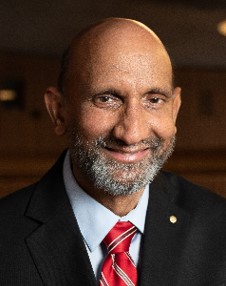 Professor Jagadish is a Distinguished Professor and Head of Semiconductor Optoelectronics and Nanotechnology Group in the Research School of Physics, Australian National University. Prof. Jagadish is the Editor-in-Chief of Applied Physics Reviews (IF:19.162), Editor of 2 book series and serves on editorial boards of 19 other journals including ACS Nano. He has published more than 1000 research papers (710 journal papers), holds 7 US patents, co-authored a book, co-edited 15 books and edited 12 conference proceedings and 20 special issues of Journals. He is a fellow of 11 Science and Engineering Academies (US, Australia, Europe, India) and 14 Professional Societies (IEEE, MRS, APS…). He received many awards including IEEE Pioneer Award in Nanotechnology, IEEE Photonics Society Engineering Achievement Award, OSA Nick Holonyak Award, IUMRS Somiya Award, UNESCO medal for his contributions to the development of nanoscience and nanotechnologies and Lyle medal from Australian Academy of Science for his contributions to Physics. He has received Australia’s highest civilian honor, AC, Companion of the Order of Australia, for his contributions to physics and engineering, in particular nanotechnology. He has been elected as the next President of the Australian Academy of Science.
Professor Jagadish is a Distinguished Professor and Head of Semiconductor Optoelectronics and Nanotechnology Group in the Research School of Physics, Australian National University. Prof. Jagadish is the Editor-in-Chief of Applied Physics Reviews (IF:19.162), Editor of 2 book series and serves on editorial boards of 19 other journals including ACS Nano. He has published more than 1000 research papers (710 journal papers), holds 7 US patents, co-authored a book, co-edited 15 books and edited 12 conference proceedings and 20 special issues of Journals. He is a fellow of 11 Science and Engineering Academies (US, Australia, Europe, India) and 14 Professional Societies (IEEE, MRS, APS…). He received many awards including IEEE Pioneer Award in Nanotechnology, IEEE Photonics Society Engineering Achievement Award, OSA Nick Holonyak Award, IUMRS Somiya Award, UNESCO medal for his contributions to the development of nanoscience and nanotechnologies and Lyle medal from Australian Academy of Science for his contributions to Physics. He has received Australia’s highest civilian honor, AC, Companion of the Order of Australia, for his contributions to physics and engineering, in particular nanotechnology. He has been elected as the next President of the Australian Academy of Science.
- Prof. Huijun Zhao, Centre Director, Griffith Uni
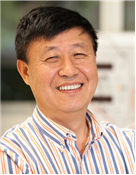 Prof. Huijun Zhao is the Director of the Centre for Catalysis and Clean Energy at Griffith University, the elected Fellow of the Royal Society of Chemistry (FRSC) and the Fellow of the Royal Australian Chemical Institute (FRACI). He has extensive expertise in energy and environmental nanomaterials, water source control & management, field-based sensing technologies and aquatic environmental quality assessment. One of his current pursuits is to explore new means to unlock the catalytic powers of nonprecious materials as high performance catalysts for important catalysis reactions. He has published over 500 refereed journal papers with >40,000 citations and an H-index of 102, and has been a Highly Cited Researcher since 2018. He has also gained 68 international patents within 8 world-wide patent families in functional nanomaterials & nanotechnology, photoelectrocatalysis and environmental monitoring systems that have been successfully commercialized.
Prof. Huijun Zhao is the Director of the Centre for Catalysis and Clean Energy at Griffith University, the elected Fellow of the Royal Society of Chemistry (FRSC) and the Fellow of the Royal Australian Chemical Institute (FRACI). He has extensive expertise in energy and environmental nanomaterials, water source control & management, field-based sensing technologies and aquatic environmental quality assessment. One of his current pursuits is to explore new means to unlock the catalytic powers of nonprecious materials as high performance catalysts for important catalysis reactions. He has published over 500 refereed journal papers with >40,000 citations and an H-index of 102, and has been a Highly Cited Researcher since 2018. He has also gained 68 international patents within 8 world-wide patent families in functional nanomaterials & nanotechnology, photoelectrocatalysis and environmental monitoring systems that have been successfully commercialized.
- Prof. Maria Forsyth, Deakin University, FAA, FRACI
 Professor Maria Forsyth “FAA” (Fellow Australian Academy of Sciences), is the Director of ARC Industrial Transformation Training Centre for Future Energy Storage Technologies, StorEnergy, past ARC Laureate fellow and currently an Alfred Deakin Professorial Fellow at Deakin University and an Ikerbasque Visiting Professorial Fellow at University of the Basque Country. Prof. Forsyth is a former Australian Laureate Fellow (2011-2017) and a world leader in electrolyte materials research. She has worked at the forefront of energy materials research since her Fulbright Research Fellowship in 1990 and has consistently made breakthrough discoveries, including in polymer electrolytes, ionic liquids and organic plastic crystals. Her research has focused on understanding the phenomenon of charge transport in these materials and at metal/electrolyte interfaces present in all electrochemical applications. This extensive body of work provides the basis for understanding the behaviour of these materials and thus, provides clarity on how to to overcome their performance limitations and design and develop improved applications, ranging from novel fuel cell designs and battery storage to corrosion prevention technologies. This knowledge is highly relevant to the design.of high performance electrolyte systems and interfaces for safe, high energy density advanced batteries, an area in which she is a leader. Professor Forsyth has a unique capability to work across the spectrum of science exploration and discovery through to translation and implementation.
Professor Maria Forsyth “FAA” (Fellow Australian Academy of Sciences), is the Director of ARC Industrial Transformation Training Centre for Future Energy Storage Technologies, StorEnergy, past ARC Laureate fellow and currently an Alfred Deakin Professorial Fellow at Deakin University and an Ikerbasque Visiting Professorial Fellow at University of the Basque Country. Prof. Forsyth is a former Australian Laureate Fellow (2011-2017) and a world leader in electrolyte materials research. She has worked at the forefront of energy materials research since her Fulbright Research Fellowship in 1990 and has consistently made breakthrough discoveries, including in polymer electrolytes, ionic liquids and organic plastic crystals. Her research has focused on understanding the phenomenon of charge transport in these materials and at metal/electrolyte interfaces present in all electrochemical applications. This extensive body of work provides the basis for understanding the behaviour of these materials and thus, provides clarity on how to to overcome their performance limitations and design and develop improved applications, ranging from novel fuel cell designs and battery storage to corrosion prevention technologies. This knowledge is highly relevant to the design.of high performance electrolyte systems and interfaces for safe, high energy density advanced batteries, an area in which she is a leader. Professor Forsyth has a unique capability to work across the spectrum of science exploration and discovery through to translation and implementation.
- Prof. Shizhang Qiao, University of Adelaide, ARC Laureate Fellow
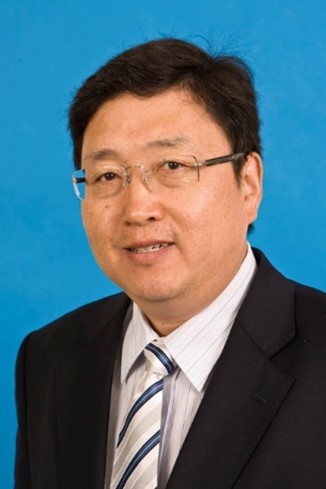 Dr Qiao is a Chair Professor at the School of Chemical Engineering and Advanced Materials, and founding Director of Center for Materials in Energy and Catalysis, in the University of Adelaide, Australia. His research expertise is in nanostructured materials for electrocatalysis, photocatalysis, batteries and other new energy technologies. He has co-authored more than 475 papers in refereed journals, including Nature, Nature Energy, Nature Materials, Nature Catalysis, Nature Communications, Science Advances, Angew Chem Int Ed, J. Am. Chem. Soc, Advanced Materials (over 78,150/90,510 citation times, h-index: 141/154, Web of Science/Google Scholar). He has filed five patents on novel nanomaterials and attracted more than 15.0 million dollars in research grants from industrial partners and the Australian Research Council (ARC). In recognition of his achievements in research, he was honoured with prestigious South Australian Scientist of Year (2021), Inaugural Vice-Chancellor's Award for Excellence in Research (University of Adelaide, 2019), Australian Laureate Fellow (2017), ExxonMobil Award (2016), an ARC Discovery Outstanding Researcher Award (DORA, 2013), 2013 Emerging Researcher Award (The American Chemical Society, Division of Energy and Fuels) and UQ Foundation Research Excellence Award (2008). He has also been awarded an inaugural UQ Mid-Career Research Fellowship, a prestigious ARC ARF Fellowship and an ARC APD Fellowship. Prof Qiao is a Fellow of International Institute of Chemical Engineers (FIChemE), Royal Chemical Society (FRSC) and Royal Australian Chemical Institute (FRACI CChem). He is an Associate Editor of Journal of Materials Chemistry A and a Clarivate Analytics/Thomson Reuters Highly Cited Researcher (130 ESI Top 1% highly cited papers) in two categories (Chemistry and Materials Science).
Dr Qiao is a Chair Professor at the School of Chemical Engineering and Advanced Materials, and founding Director of Center for Materials in Energy and Catalysis, in the University of Adelaide, Australia. His research expertise is in nanostructured materials for electrocatalysis, photocatalysis, batteries and other new energy technologies. He has co-authored more than 475 papers in refereed journals, including Nature, Nature Energy, Nature Materials, Nature Catalysis, Nature Communications, Science Advances, Angew Chem Int Ed, J. Am. Chem. Soc, Advanced Materials (over 78,150/90,510 citation times, h-index: 141/154, Web of Science/Google Scholar). He has filed five patents on novel nanomaterials and attracted more than 15.0 million dollars in research grants from industrial partners and the Australian Research Council (ARC). In recognition of his achievements in research, he was honoured with prestigious South Australian Scientist of Year (2021), Inaugural Vice-Chancellor's Award for Excellence in Research (University of Adelaide, 2019), Australian Laureate Fellow (2017), ExxonMobil Award (2016), an ARC Discovery Outstanding Researcher Award (DORA, 2013), 2013 Emerging Researcher Award (The American Chemical Society, Division of Energy and Fuels) and UQ Foundation Research Excellence Award (2008). He has also been awarded an inaugural UQ Mid-Career Research Fellowship, a prestigious ARC ARF Fellowship and an ARC APD Fellowship. Prof Qiao is a Fellow of International Institute of Chemical Engineers (FIChemE), Royal Chemical Society (FRSC) and Royal Australian Chemical Institute (FRACI CChem). He is an Associate Editor of Journal of Materials Chemistry A and a Clarivate Analytics/Thomson Reuters Highly Cited Researcher (130 ESI Top 1% highly cited papers) in two categories (Chemistry and Materials Science).
- Prof. Debra Bernhardt, UQ, ARC Laureate Fellow, FAA
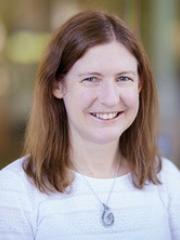 Professor Bernhardt is a Fellow of the Australian Academy of Science and Fellow of the Royal Australian Chemical Institute. She leads the theoretical and computational molecular science research in the AIBN. Professor Bernhardt has held research appointments at the University of Basel, Switzerland; the Australian National University; and Griffith University, where she was the founding director of the Queensland Micro- and Nanotechnology Centre. While at Griffith University in 2011, Professor Bernhardt was awarded the Vice Chancellor’s Research Excellence Award for Research Leadership. She is the recipient of the 2004 Australian Journal of Chemistry Award for Innovative Work in Physical Chemistry by a Younger Scientist and the 2017 Association of Molecular Modellers of Australasia Medal. In 2019 she was awarded an ARC Australian Laureate Fellowship.
Professor Bernhardt is a Fellow of the Australian Academy of Science and Fellow of the Royal Australian Chemical Institute. She leads the theoretical and computational molecular science research in the AIBN. Professor Bernhardt has held research appointments at the University of Basel, Switzerland; the Australian National University; and Griffith University, where she was the founding director of the Queensland Micro- and Nanotechnology Centre. While at Griffith University in 2011, Professor Bernhardt was awarded the Vice Chancellor’s Research Excellence Award for Research Leadership. She is the recipient of the 2004 Australian Journal of Chemistry Award for Innovative Work in Physical Chemistry by a Younger Scientist and the 2017 Association of Molecular Modellers of Australasia Medal. In 2019 she was awarded an ARC Australian Laureate Fellowship.
- Prof. Yun Liu, ANU, ARC Laureate Fellow
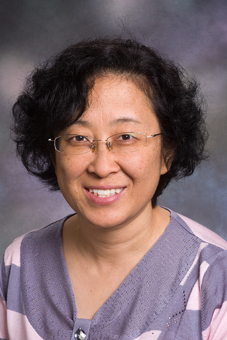 Yun Liu received her PhD degree from the Xian Jiaotong University in 1997. She has since held the AIST fellow and STA Fellow positions at the National Institute of Advanced Industrial Science and Technology (AIST), Kyushu, Japan (1998-2001) before the commencement of her Postdoctoral Fellow position at the Australian National University in 2001. She is currently a tenured academic staff as a chair Professor, and the Head of the Functional Materials Research Group at the Australian National University. She was awarded fellowships of the AIST (1998-1999) and the STA(1999-2001, now renamed as the Fellow of JSPS) in Japan, the Australian Research Council (ARC) Queen Elisabeth II (2006-2010), Future Fellow (2011-2016) and Georgina Sweet Australian Laureate Fellowin (2021-) Australia. She is a fellow of the Australian Institute of Physics (FAIP). She is a national board member and a Certified Materials Professional (CMatP) of the Materials of Australia (MA). She is also a member of the Society of Crystallographers in Australia and New Zealand (MSCANZ) as well as the Society of Australian Ceramics. She is the president of the ANBUG. She also chair the Materials Chemsitry Division of the RACI.
Yun Liu received her PhD degree from the Xian Jiaotong University in 1997. She has since held the AIST fellow and STA Fellow positions at the National Institute of Advanced Industrial Science and Technology (AIST), Kyushu, Japan (1998-2001) before the commencement of her Postdoctoral Fellow position at the Australian National University in 2001. She is currently a tenured academic staff as a chair Professor, and the Head of the Functional Materials Research Group at the Australian National University. She was awarded fellowships of the AIST (1998-1999) and the STA(1999-2001, now renamed as the Fellow of JSPS) in Japan, the Australian Research Council (ARC) Queen Elisabeth II (2006-2010), Future Fellow (2011-2016) and Georgina Sweet Australian Laureate Fellowin (2021-) Australia. She is a fellow of the Australian Institute of Physics (FAIP). She is a national board member and a Certified Materials Professional (CMatP) of the Materials of Australia (MA). She is also a member of the Society of Crystallographers in Australia and New Zealand (MSCANZ) as well as the Society of Australian Ceramics. She is the president of the ANBUG. She also chair the Materials Chemsitry Division of the RACI.
- Prof. Douglas Macfarlane, Monash University, ARC Laureate Fellow
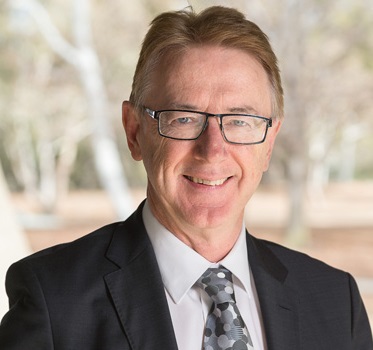 Professor Douglas MacFarlane is an ARC Laureate Fellow at Monash University. He is also head of the Energy Program in the ARC Centre of Excellence for Electromaterials Science. He is currently researching materials that will enable new pathways to generate energy and fuel from sustainable resources (e.g. the sun) and materials that are currently waste or pollutants (e.g. CO2 gas). One of his main focus areas within ACES will be the generation of ‘Solar Fuels’ from nothing more than CO2, water and sunlight. He was elected to the Australian Academy of Sciences in 2007 and to the Australian Academy of Technological Sciences and Engineering in 2009. He is currently Chair of the Editorial Advisory Board of the Australian Journal of Chemistry and is a member of the Editorial Advisory Board of Chemical Communications - the flagship journal of the Royal Society of Chemistry. He is also a member of the Editorial Advisory Board of Green Chemistry. He holds Adjunct appointments at the University of Alabama and Queens University, Belfast.
Professor Douglas MacFarlane is an ARC Laureate Fellow at Monash University. He is also head of the Energy Program in the ARC Centre of Excellence for Electromaterials Science. He is currently researching materials that will enable new pathways to generate energy and fuel from sustainable resources (e.g. the sun) and materials that are currently waste or pollutants (e.g. CO2 gas). One of his main focus areas within ACES will be the generation of ‘Solar Fuels’ from nothing more than CO2, water and sunlight. He was elected to the Australian Academy of Sciences in 2007 and to the Australian Academy of Technological Sciences and Engineering in 2009. He is currently Chair of the Editorial Advisory Board of the Australian Journal of Chemistry and is a member of the Editorial Advisory Board of Chemical Communications - the flagship journal of the Royal Society of Chemistry. He is also a member of the Editorial Advisory Board of Green Chemistry. He holds Adjunct appointments at the University of Alabama and Queens University, Belfast.
- Prof. Zaiping Guo, The University of Adelaide, ARC Laureate Fellow
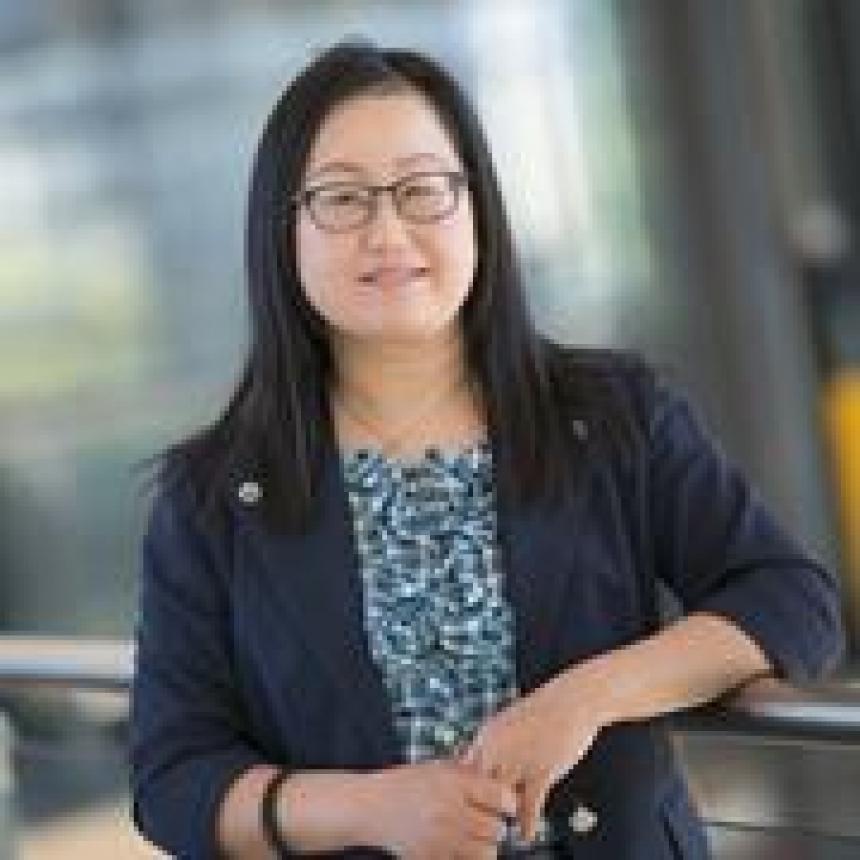 Professor Zaiping Guo is an ARC Australian Laureate Fellow at School of Chemical Engineering & Advanced Materials, The University of Adelaide. She received a PhD in Materials Engineering from the University of Wollongong in 2003. Before joining The University of Adelaide, she was a Distinguished Professor in the school of Mechanical, Materials, Mechatronic, and Biomedical Engineering, Faculty of Engineering & Information Sciences, University of Wollongong. Her research focuses on the design and application of electrode and electrolyte materials for energy storage and conversion, including rechargeable batteries, hydrogen storage, and fuel cells. She published more than 400 papers in peer-reviewed Journals, and these publications have been cited >36,000 times with an h-index of 103. Her research achievements have been recognized through numerous awards, including NSW Premier's Prizes for Science & Engineering (2020), ARC Queen Elizabeth II Fellowship in 2010, ARC Future Fellowship (FT3) in 2015, ARC Laureate Fellowship in 2021, and the Clarivate Analytics Highly Cited Researcher Award in 2018, 2019, 2020 and 2021.
Professor Zaiping Guo is an ARC Australian Laureate Fellow at School of Chemical Engineering & Advanced Materials, The University of Adelaide. She received a PhD in Materials Engineering from the University of Wollongong in 2003. Before joining The University of Adelaide, she was a Distinguished Professor in the school of Mechanical, Materials, Mechatronic, and Biomedical Engineering, Faculty of Engineering & Information Sciences, University of Wollongong. Her research focuses on the design and application of electrode and electrolyte materials for energy storage and conversion, including rechargeable batteries, hydrogen storage, and fuel cells. She published more than 400 papers in peer-reviewed Journals, and these publications have been cited >36,000 times with an h-index of 103. Her research achievements have been recognized through numerous awards, including NSW Premier's Prizes for Science & Engineering (2020), ARC Queen Elizabeth II Fellowship in 2010, ARC Future Fellowship (FT3) in 2015, ARC Laureate Fellowship in 2021, and the Clarivate Analytics Highly Cited Researcher Award in 2018, 2019, 2020 and 2021.
Contact us
Program and general enquiries: iscem2022@uq.edu.au
Venue
2801 Gold Coast Hwy
Surfers Paradise QLD 4217
